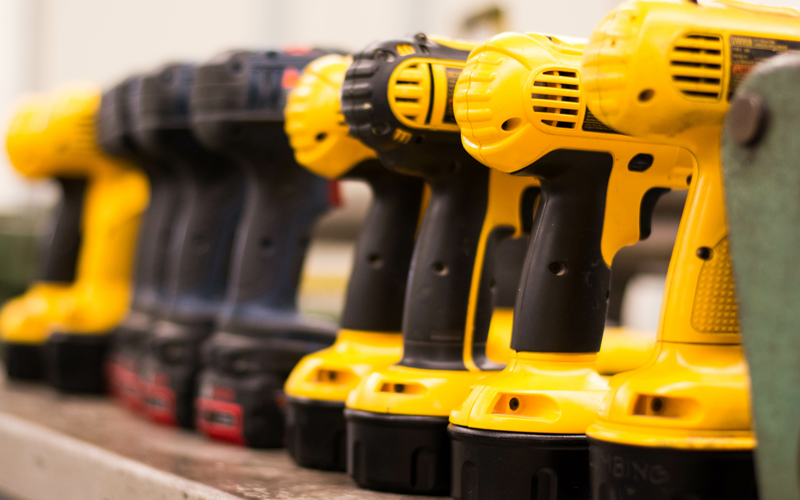
Safety alert raised by building contractor regarding use of lithium-ion batteries
Members are reminded to use batteries found in hand-held and larger equipment in accordance with manufacturer guidance and prescribed risk assessments.
The increased use of battery-powered tools on building sites has been generally positive from a health and safety perspective, and led to the reduction in use of 110v power supplies, trailing cables and tail-pipe emissions. However, a safety alert released by a building contractor following three incidents in short succession, all involving lithium-ion batteries belonging to power tools, serves as a reminder to users of batteries to remain aware of the risks.
Lithium-ion batteries are commonly used in construction and landscape power tools due to their ability to store large amounts of energy in a compact package. Under normal operation, lithium-ion batteries rapidly convert chemical energy to electrical energy.
Inside a single battery are several individual ‘cells’; cylindrical-shaped units that chemically store energy. Individually cells are not powerful, but when joined together can generate considerable voltages.
Under correct use lithium-ion batteries are very safe; risks only arise when batteries or charging equipment is not used correctly.
Common causes of damage to lithium-ion batteries include:
- Dropping
- Crushing
- Piercing
- Vibration
- External heat sources
If a cell within a battery is damaged, chemical reactions replace the normal electrochemical reactions, which can lead to excess heat within the cell.
If too much heat is generated, a single cell can experience ‘thermal runaway’, which means an unstable chemical reaction occurs. If the heat continues to rise, internal short circuit is likely to result, leading to higher temperatures and, in come cases, ignition. This ignition may cause surrounding cells to also malfunction and ignite.
Basic controls can be used to address the risks that arise from the use of lithium-ion batteries:
- Ensure tools are fitted with batteries purchased through a reputable supplier
- Be wary of using non-genuine batteries. BALI accredited supplier, Makita, has a webpage dedicated to the identification of non-genuine batteries. See the Further reading section of this article for more information.
- Inspect batteries and tools before use – this includes hired, company or individual tools
- Ensure batteries are stored, charged and used according to manufacturer instructions. For example:
- avoid storing batteries in a case or bag that contains metal objects that may come into contact with the battery terminals
- only use charging equipment recommended by the manufacturer for that particular battery
- note manufacturer recommendations regarding temperatures for storage. Most recommend -10°C to 50°C.
- Remember temperatures inside a vehicle can be much greater than external ambient temperatures, particularly during the summer.
- Do not expose batteries to water
- Have systems in place for managing the use of lithium-ion batteries including the tracking of where batteries are being used and who is in control of the batteries, pre-use inspections, regular maintenance inspections, and training of personnel in how to respond in event of emergencies.
Further reading
